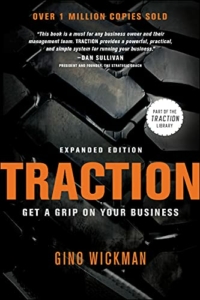Archive for month: March, 2022
4 Pillars of Employee Benefits
/in Build A Better Business/by Apex Business Advisors Employee benefits in the United States are costs that are underestimated by employees and employers. Employees don’t often appreciate what an additional financial cost these benefits are above and beyond a salary. Employers often miss just how much employees value (and brag about) these benefits. Businesses that are built to last (and sell) have four key pillars of employee benefits in place and in this article we will speak briefly about each of them and share why those pillars provide a firm foundation for business owners.
Employee benefits in the United States are costs that are underestimated by employees and employers. Employees don’t often appreciate what an additional financial cost these benefits are above and beyond a salary. Employers often miss just how much employees value (and brag about) these benefits. Businesses that are built to last (and sell) have four key pillars of employee benefits in place and in this article we will speak briefly about each of them and share why those pillars provide a firm foundation for business owners.
Health Insurance
This is a well-known benefit that has had its ups and downs in the last decade due to changes in federal legislation. But it’s routinely one of the most important benefits potential employees ask about.
Employers should realize that health insurance is just as much peace of mind as it is doctor’s visits and prescription drug coverage: employees know that in the near and medium term, one aspect of their life is “handled.”
Health insurance should not be underestimated as a key recruiting tool and differentiator. Deeper and more comprehensive coverage that the basic level is not inexpensive, by any means, but employers should consider that it’s a benefit that can pay for itself, in many different senses of the word.
Small Business Health Care Tax Credit
Some small businesses can qualify for tax credits. Broadly, all of the following conditions must apply:
- Fewer than 25 full time employees (FTE)
- The average employee salary is less than $56,000/year
- The business pays 50% of the premium
- The coverage is offered to all FTE
The general rule is the smaller the business, the larger the credit on offer. Learn more (and use an estimator) here.
Retirement
Post March-2020, more and more employees are thinking actively about their futures. Offering some options that include company matching is a way for employees to check off another box on their life planning list, this time in the “long term planning” category.
A major mistake that employers make is giving employees many investment choices. This is difficult enough in the cereal aisle, but it’s paralyzing to many given the life implications of retirement planning. Do the hard work of coming up with two, maybe three choices for your employees, covering various situations and risk profiles. This will simplify the process for them and make it more likely that they will participate. Companies have to pay a charge for administering the program regardless of how many participate in it, so employers might as well get the mileage out of it that employees are hoping to get as well.
Depending on your company makeup and situation, profit sharing might be worth incorporating/offering as well.
Paid Time Off
American work culture tends towards overwork. While there isn’t yet an English word for “death by overwork” (karoshi in Japanese) many Americans leave vacation time untaken (or would rather sell that time back), leading to an unhealthy imbalance between work and real life.
The extreme reaction to this imbalance from some Silicon Valley companies has been to offer “unlimited” vacation, though how this works practically is still very much a work in progress.
A more interesting solution is the Swedish one: employees get paid more during their vacation days, giving a financial incentive for people to actually take time off for themselves. Like many of the Swedish work experiments, it’s been successful.
Encourage people to take off for themselves and lead by example. You don’t need to go anywhere exotic, you just need to signal that you value people’s personal lives, which is one of the big reasons they show up for you in the first place.
Remote Work
Before March 2020 remote work may have been considered a luxury enjoyed by the few but as companies consider what to do with their office space long term they should consider the fact that a growing segment of Zoomer workers put a remote work option in the same hallowed category as health care or even above retirement benefits (what’s that?).
The last two years have given observant employers plenty of time to consider how their businesses operate remotely vs in person and those who insist on in-person employment will need to have considerable offsetting benefits to compensate for that perceived loss.
If you need help implementing one of these employee benefit pillars, we know some consultants who can help. Give us a call.
Podcast Episode 9 – SBA Myths: True or False?
/in Podcast/by Apex Business AdvisorsNationally ranked SBA lender Jason Moxness joins Doug and Andy to play a game called SBA Myths: True or False?
Find out which of these are fact and which are fiction.
1. SBA lending is slow with mountains of red tape and paperwork.
2. The SBA lends directly to small businesses, so I can get an SBA loan anywhere.
3. SBA loans are for struggling businesses.
4. The burden of an SBA loan out-weigh the benefits.
5. SBA loans are not borrower friendly.
Case Study #60: Converting the Sale of One Business into Two
/in Case Studies/by Apex Business Advisors Things were looking bright for Calvin Johnson and his single-source office supply business Lykki in early 2020. While he provided traditional office supplies, the fastest growing part of his business was in office coffee: he had even started roasting his own beans to keep up with demand (and maximize profits). At the end of 2019 he signed a contract with 50 banks, which meant buying a bunch of equipment to put into those banks. Then March 2020 happened. This is the story of how Calvin salvaged his 23 years of hard work and pulled off a sale in one of the most challenging times for businesses like his.
Things were looking bright for Calvin Johnson and his single-source office supply business Lykki in early 2020. While he provided traditional office supplies, the fastest growing part of his business was in office coffee: he had even started roasting his own beans to keep up with demand (and maximize profits). At the end of 2019 he signed a contract with 50 banks, which meant buying a bunch of equipment to put into those banks. Then March 2020 happened. This is the story of how Calvin salvaged his 23 years of hard work and pulled off a sale in one of the most challenging times for businesses like his.
Why Choose Lykki
Small businesses often don’t realize that buying office supplies from one vendor, kitchen supplies from another, and coffee from yet another one isn’t just a poor use of time, isn’t just more labor for the accounting department, it’s often more expensive. Lykki was able to save its customers time and money and make accounting’s job simple.
This was something they also believed as a company, as “creating happier workplaces” was a part of their mission. While they had started in the office supply business first, they naturally grew into helping their customers with everything else they might need, from water, to coffee, to food.
A Tale of Two Businesses
Even though Lykki made ordering simple and seamless for their customers, the two divisions of the company couldn’t have been more different.
The office supplies business represented 20-30% of their topline revenue, yielded a steady margin in the high 20s, and offered 30,000 SKUs using just-in-time logistics, meaning, no inventory.
The rapidly growing food and kitchen supplies business represented 70-80% of their topline revenue. This required a warehouse for food that needed to be tracked towards expiry and, as we mentioned already, even featured their own coffee roasting, allowing them to take advantage of integration and make even greater margins. On this side of the business blended margins were in the 40s.
What Changed
Calvin had his 50th birthday and reflected on where he was in his life and felt that it was time for a new chapter in his life, but having consulted with friends and mentors, the $7-8M in topline that Lykki was doing wasn’t going to attract the big national players that could give him a valuation he wanted. He would need to drive it to $10-20M to do that.
While he obviously pushed his team to grab some of that necessary growth via sales, he also tried the acquisition route and found that people weren’t interested in selling. Turns out that a lot of small office coffee business suppliers were running nice little lifestyle businesses and weren’t interested in giving those up, thank you very much. So, at least for the moment, acquiring his way to that revenue wasn’t going to happen either.
Prepare For a Sale
So, while he let his team push growth and accepted that the market wasn’t ripe for a roll-up, he got to work doing what he needed to for a future sale:
- He found an M&A team to help him with preparing for the sale, and he placed particular value on his M&A accountant and lawyer, both of whom had experience with deals of this size
- He built out his data room for future due diligence
- He explored the benefits of a share sale vs an asset sale
Pandemic Pain
As many other business owners did in March 2020, Calvin felt like he was in a bad dream. Customers told him that they were closing offices and might revisit that decision “in January.” Sales dropped by 85%. As for that coffee deal he had just signed with the bank, the business model for office coffee always implied free usage of the equipment, assuming a certain minimum order. But with no in-office workers, many businesses simply told him he could “pick up his machines.” He did.
While the Canadian government helped Calvin and his employees survive most of 2020, via 70% subsidies of his rent and 75% subsidies of his employees’ pay, when January 2021 rolled around those programs started to expire and many customers were not coming back. He realized his options included bankruptcy or selling. He looked at bankruptcy and saw that it could be expensive and complicated too, so he just decided to throw himself into a sale, realizing that it would be smart to split the company in two.
Through his network he found out that a certain company had a war chest and was making acquisitions in his space and he gave them a call. The potential buyer was willing to hear him out. Calvin reasoned that at some point the numbers would come back (he was roughly at 50% of his former level of business) so rather than look at the growth curve pre-pandemic, he simply looked at the historical numbers from 2018 and 2019, reasoning that at some point at least those levels would return. The buyer agreed and accepted the price Calvin offered with no counter.
The office supplies business was harder to move, but Calvin did manage to land a deal that was 50% upfront and a 50% earnout (an earnout he is currently in the middle of). In both sales the buyers wanted an asset sale instead of a share sale, which left Calvin to figure out different tax-advantaged ways to get the money out of the company. But that’s the sort of problem he was happy to have.
Takeaways
You can’t help but admire Calvin, who managed to pull off not just one, but two sales, when he could just have easily had none and faced bankruptcy. Three key lessons:
- Follow your customers’ lead — the office coffee market exploded during Calvin’s time and he leaned into that trend, growing his company’s revenue and market share.
- (Have your broker) pick up the phone — while the narrative of “the business will come back” was a bet on Calvin’s part, it was a bet the buyer was willing to take as well; if you stand behind a narrative a buyer may have confidence in it as well.
- Don’t lose heart at the finish line — we always say that buying and selling a business is a process, and you need to trust that process. Calvin didn’t give up when confronted with devastating numbers, and his perseverance paid off.
Are you considering buying or selling a distressed business? We can help! Give us a call.
Podcast Episode 8 – The Listing Process
/in Podcast/by Apex Business AdvisorsOn this episode of the Apex Business Advisors podcast, we’re talking about the listing process. We’ll discuss what goes into an engagement agreement, creating a cash flow statement, the importance of a seller’s disclosure document, and the creation of a Confidential Business Review.
Book Club #26: Traction, by Gino Wickman
/in Book Club/by Apex Business Advisors We’ve already alluded to Gino Wickman’s Traction here on the blog before by writing about one of the key elements of the book: the Entrepreneurial Operating System (EOS). But there are so many other valuable nuggets of wisdom in the book that we wanted to make sure we also did a book club article to highlight just a few of its most valuable ideas.
We’ve already alluded to Gino Wickman’s Traction here on the blog before by writing about one of the key elements of the book: the Entrepreneurial Operating System (EOS). But there are so many other valuable nuggets of wisdom in the book that we wanted to make sure we also did a book club article to highlight just a few of its most valuable ideas.
Build Your Leadership Team
A business that is built to sell has a solid leadership team, even if that’s only composed of one or two other non-owners. Wickman lists five abilities that everyone in your leadership team should have:
- Simplify — “eliminating complexity and reducing everything to the essential”
- Delegate and Elevate — “freeing and elevating yourself to do what you do best, and doing the same for every person in your organization”
- Systematize — “documenting and getting everyone to follow the essential procedural steps in your company’s core processes”
- Structure — “defining and organizing the positions in your organization to reduce complexity and increase clarity, communication, and accountability”
- Predict — Choose the right short-term path (issues over the next 90 days) vs long-term challenges (issues over 90 days)
Take Risks
Growing businesses have a healthy approach to risk. Wickman lists three ways to approach it:
- Be open-minded — whether you’re looking at how NFTs might make sense for your business or the possibility of remote work for your employees, you don’t reject ideas out of hand just because you don’t understand them or they make you uncomfortable.
- Be growth-oriented — “if it ain’t broke don’t fix it” is a truism, but so is “if you’re not growing, you’re dying.” Be willing to look at different ways your business can grow that you haven’t tried before.
- Be vulnerable — part of why risk is scary for all of us is the possibility that we may lose something or “go backwards.” But those who are willing to take risks don’t banish fear. They manage it by being willing to be uncomfortable, which includes being vulnerable.
Know Your Role
Michael Gerber’s E-Myth was famous for parsing the entrepreneur, the technician, and the manager as hats all business owners must wear at different stages of the business. The two titles that Wickman’s action-oriented book offers are visionary and integrator.
The visionary is a dreamer, strategist, and planner. The integrator is the executor, the “get things done” person. Every business needs both, and very rarely are both roles well contained in one person. In the press it’s very often the visionary that gets the credit (think Steve Jobs) and rarely the integrator that’s even mentioned (think Scottie Pippen).
A lot of frustrations in business partnerships can originate from a failure to understand the necessity (and equality) of both of these roles in a successful business and a subsequent failure for said integrator/visionary to stay in respective lanes.
Numbers Matter
One of the most valuable ideas of Traction and the EOS is the scorecard, the idea that you can, at a glance, through a set of numbers and metrics, see where your business is at the moment and where it is headed. Many business owners know that information intuitively by working every day in the business. But that’s not a sustainable business practice; it’s not something that can be packaged and sold.
Numbers should be known and shared by everyone in the business to make real progress. Having relevant numbers arranged in a regular scorecard allows you to get things done in the present and plan for the future. When those numbers are integrated with a leadership team that is tracking short-term and long-term issues, it means you also have a chance to catch items that fall through the cracks.
Some of the best people to help implement the principles in Traction are business coaches. Thankfully, we know a few. Give us a call and we can connect you!
Podcast Episode 7 – What makes a successful sale?
/in Podcast/by Apex Business AdvisorsValerie Vaughn joins us today to lend her perspective on a successful transaction that recently closed. She shares her thoughts on how the personal relationship between buyer and seller is the critical component of a successful transition. Specifically, how their organization and communication led to a Happy New Year for all involved; of course, it wouldn’t have happened had Doug not had a fantastic listing to begin the process.
Podcast Episode 6 – When Should I Start the Process?
/in Podcast/by Apex Business AdvisorsOn this episode of the Apex Business Advisors Podcast, we’re discussing the timing for when you should the process of exiting your business. We’ll share our thoughts on when to start the exit planning process, how to navigate the economic conditions that exist, and a few tips on tidying up your business.
Are you considering selling your business? Are you considering entering the world of entrepreneurship? If so, please get in touch for a FREE consultation.
Audit Your Expenses to Boost Profitability
/in Build A Better Business/by Apex Business Advisors One of the easiest ways to boost profitability is to cut unnecessary expenses or to save on the necessary ones. The former might seem fairly obvious, but did you know that there are consultants out there to help you with the latter, and that they often don’t ask for pay unless they’ve returned results? Let’s talk about how they do it.
One of the easiest ways to boost profitability is to cut unnecessary expenses or to save on the necessary ones. The former might seem fairly obvious, but did you know that there are consultants out there to help you with the latter, and that they often don’t ask for pay unless they’ve returned results? Let’s talk about how they do it.
Enter Cost Analysts
There are companies whose entire business consists of finding cost savings. They don’t often don’t charge an upfront fee, but rather, take a percentage of the savings for a set amount of time in exchange for their work.
Generally what they are going to need are your invoices and any contracts or agreements you may have signed with various service providers. They will then audit these invoices to make sure you’re getting charged appropriately and, if necessary, renegotiate for better rates. Errors and overcharges happen all the time; most business owners simply don’t have time to put forensic-level attention on monthly bills.
Where Can I Find Savings?
There are lots of places to save, starting with a place you might not expect: your bank. We’re the first to tell you about the importance of developing a banking relationship but sometimes a cost analyst can give you context you wouldn’t otherwise have.
In one case study we examined, a client had absolutely no desire to change banks but was told they were overpaying fees to the tune of $32,000. When the client went to the bank with the report from the cost analyst, the bank offered to reduce the fees by $9,000. The cost analyst then gave the client the report that showed the bank was not charging market rates given the existing relationship. They changed their tune and came close to a $30,000 total reduction in fees.
Another well-known place to find savings is with shipping. Freight auditors have long studied freight and shipping bills to make sure packages and shipments arrive on time and if those shipments did not arrive on time, to demand the refunds that are part of the shipping agreement.
The possibilities are endless: office supplies, cell phone bills, waste management, cleaning services, merchant fees, utilities, even your real estate leases.
Why Use Professionals?
Well, just like anything in life, you can opt to do something yourself, but do you really have the time or expertise to audit all your bills? As we mentioned above, most of these types of businesses don’t charge an upfront fee and only take a percentage of savings as compensation for their work. Once that’s repaid, you’re left with the savings and the experience to make sure that you continue to keep an eye out on all your commitments and contracts.
There are plenty of good firms out there but two that we’ve heard good things about are P3 Cost Analysts and Expense to Profit. Both boast glowing customer testimonials and millions of dollars saved.
These are the decisions you can make now to make your business that much more profitable in the short to medium term, and that much more valuable when you decide it’s time to exit.
Looking for some help to get started identifying places where you can save? We’d love to look over your financial statements with you. Give us a call today.
Contact
7101 College Blvd #1650
Overland Park, KS 66210
Map & Directions
Virginia
211 N Union Street, Suite 100
Alexandria, VA 22314
Phone: (913) 383-2671
Fax: (913) 273-6719
Email:
Recent Blog Posts
 Leveling Up with a Peer Advisory GroupApril 28, 2025 - 6:00 am
Leveling Up with a Peer Advisory GroupApril 28, 2025 - 6:00 am Goldilocks Status: Getting Everything “Just Right” to Sell Your BusinessApril 21, 2025 - 6:00 am
Goldilocks Status: Getting Everything “Just Right” to Sell Your BusinessApril 21, 2025 - 6:00 am Common Misperceptions in Business SalesApril 14, 2025 - 6:00 am
Common Misperceptions in Business SalesApril 14, 2025 - 6:00 am
Proud Members of
![]()
![]()

